How to Get Rid of Wasps and Hornets Without Chemicals
16 Chemical-Free Ways to Get Rid of Household Pests
You don't need to Napalm your home to get rid of ants, flies, cockroaches, mice and other pests. Try these environmentally friendly ideas first.
Every editorial product is independently selected, though we may be compensated or receive an affiliate commission if you buy something through our links. Ratings and prices are accurate and items are in stock as of time of publication.
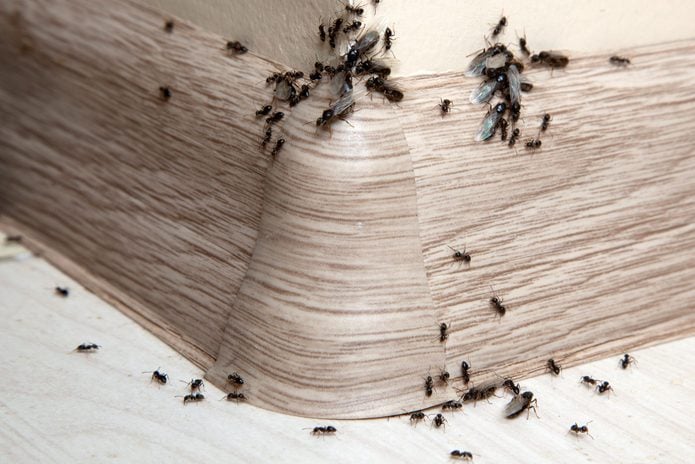 Cherkas/Getty Images
Cherkas/Getty Images
Simple pest control
No one likes seeing ants, flies, cockroaches and other household pests in their home, but controlling them can be complicated and expensive, and often involves chemicals. Fortunately, there are plenty of simple tricks and household products, some of which you probably already have on hand, that can create a safe and chemical-free pest defense mechanism. Use these strategies to combat low-grade infestations or to keep pests out of your home in the first place. If the situation has escalated into something akin to these pest control nightmares, you will want to seek out the services of a professional.
 Drbouz/Getty Images
Drbouz/Getty Images
Stop ants with a natural barrier
Sprinkle a narrow, unbroken trail of cayenne pepper, black pepper, or salt across their path. Or draw a line with chalk. Here are more simple ways to get rid of ants for good.
 ABERRATION FILMS LTD/SCIENCE PHOTO LIBRARY/Getty Images
ABERRATION FILMS LTD/SCIENCE PHOTO LIBRARY/Getty Images
Keep away cockroaches naturally
To discourage cockroaches, try this onion trick from Scott Cam, founder of BlueprintHome: Chop one onion and combine with one teaspoon of baking soda, and place the combo near any cockroach hot spots . Other repellents include vanilla beans and dried pyrethrum daisies. Here's what really kills cockroaches—and what doesn't.
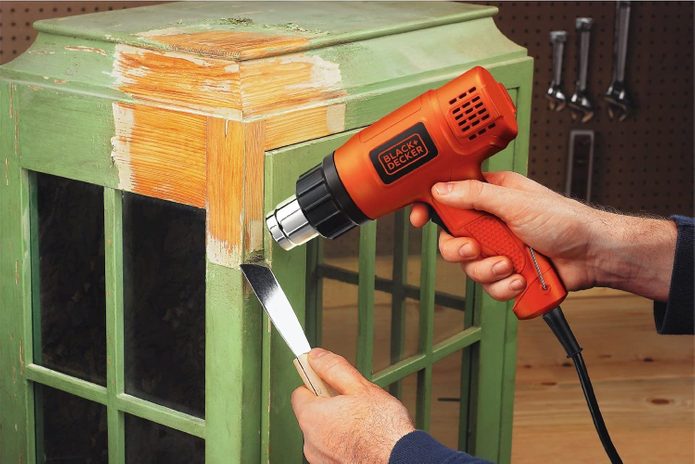 via amazon.com
via amazon.com
Try a heat gun on cockroaches
Instead of using surface sprays, consider applying a heat gun to flush out cockroaches from under cupboards and behind fridges. The heat damages their wings, causing them to die. Check out these other exterminator secrets.
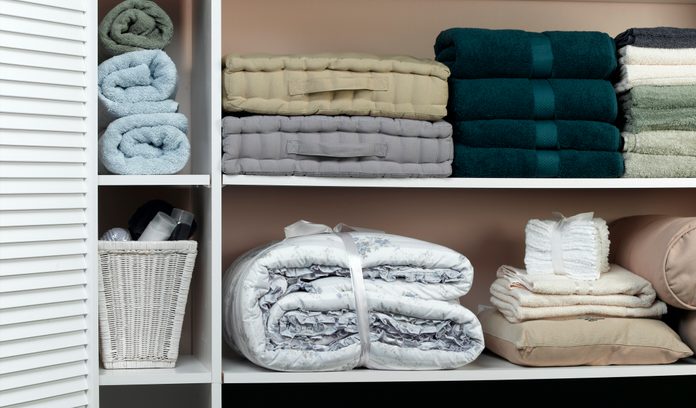 AdShooter/Getty Images
AdShooter/Getty Images
Rotate loose items to discourage nesting
Regularly move around loose stored items, such as plastic bags, towels, toiletries, and under-sink products, because cockroaches and other household pests love to nest in them, and the move disrupts that process. Here are some easy-care houseplants that can improve air quality.
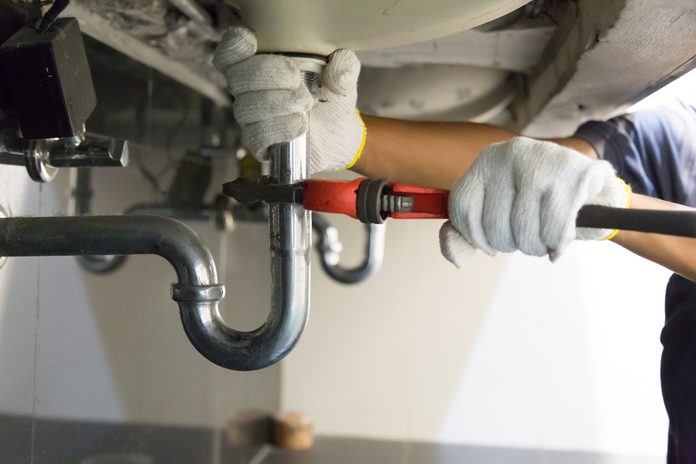 A stockphoto/Getty Images
A stockphoto/Getty Images
Fix leaks immediately
Make sure you promptly fix leaking taps and pipes, because cockroaches and other household pests love damp, dark, warm places with a source of water. Cockroaches will even congregate in the cavity of your dishwasher door.
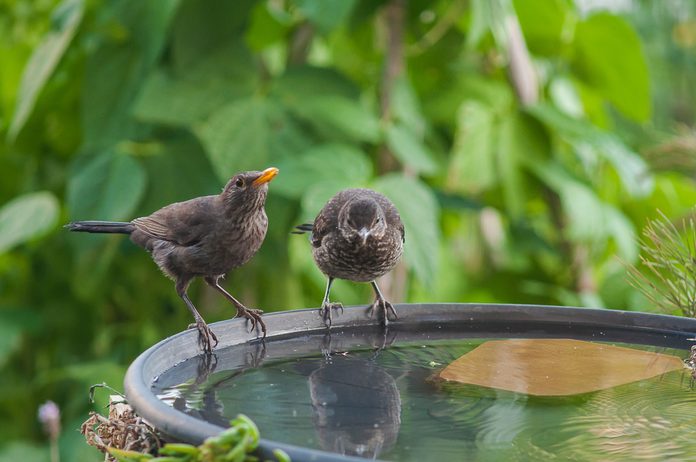 Nuno Cândido/EyeEm/Getty Images
Nuno Cândido/EyeEm/Getty Images
Cover standing water
Mosquitoes are drawn to standing water—it's where they lay their eggs. According to Jen Stark, founder of Happy DIY Home, this means you should "cover, turn over, or remove any items in your yard that can hold water, such as buckets, bird baths, and wading pools," so that mosquitos don't have an opportunity to nest there. This is actually one of the ways Disney World keeps mosquitoes out.
 monkeybusinessimages/Getty Images
monkeybusinessimages/Getty Images
Keep a clean kitchen…
Wipe up spills immediately and don't leave food uncovered on kitchen counters. This goes for pet food too—it may not seem like a tasty treat to you, but it can attract pests just like any other food. And clean the oven regularly after using it. Here are 15 sneaky signs your home is about to be infested.
 Drazen_/Getty Images
Drazen_/Getty Images
…and the rest of your house
The kitchen might be a major target for bugs, but you should be sure you're keeping the rest of your house clean as well! "Vacuum and mop weekly, especially the areas under and in between appliances, along the baseboards and closet shelves," Stark suggests. "Empty trash cans and recycle bins regularly, and make sure to clean any spills on the inside of the bins." Make sure you're washing your pet's bedding regularly too.
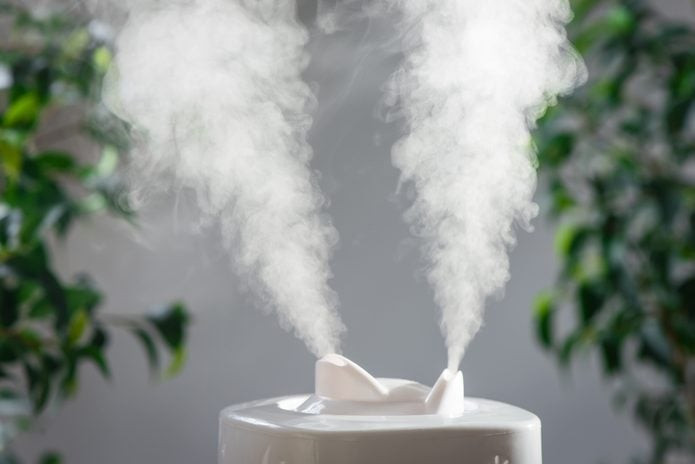 Draw05/Getty Images
Draw05/Getty Images
Monitor your humidifier
This is more of a preventative measure, but plenty of critters are attracted to moisture, like "centipedes, millipedes, sow bugs, silverfish, and earwigs," Stark warns. They're "drawn to damp areas in your home for use as both a breeding ground and a watering hole." To prevent this unpleasant situation from becoming a reality (or alleviate existing dampness in your home), you should keep an eye on your humidifier levels. "Run a humidifier to keep the ideal relative humidity levels in your home somewhere between 30% and 50%," Stark says. If you don't already have a humidifier, you won't regret getting one of these best humidifiers!
 CasarsaGuru/Getty Images
CasarsaGuru/Getty Images
Inspect the outside of your home
Trim back branches that touch your house; ants that feed on aphids in trees use branches as a bridge to your home. Look for holes and gaps in soffits and fascia, especially where they run into adjoining rooflines. More to watch out for: A missing or chewed-through screen on roof vents lets squirrels, bats, and other household pests into your attic. Finally, add chimney caps if you don't already have them. They prevent birds and rodents from making the firebox of your fireplace their summer home. Find out 11 pests that could be hiding in your attic.
 Jason Finn/Getty Images
Jason Finn/Getty Images
Block the bottom of doors
Jim Brixius, associate certified entomologist for Ehrlich Pest Control, suggests a method for keeping mice out of your home: "Put brush strips on the bottom of doors to prevent entry, especially in older homes where the doors may not fit as well." He also says to "cover vents with fine galvanized wire mesh."
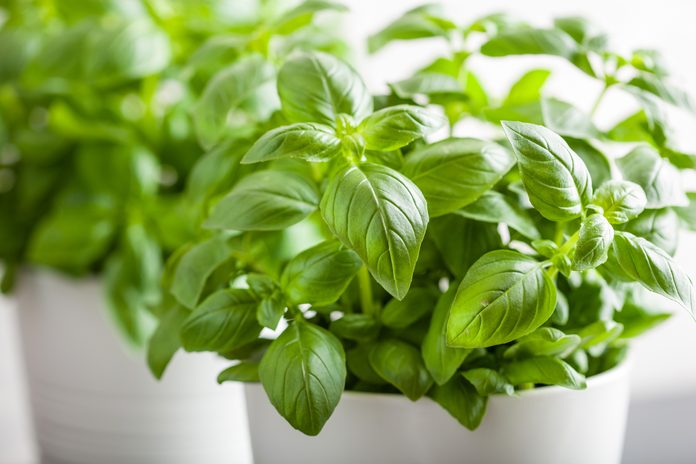 OlgaMiltsova/Getty Images
OlgaMiltsova/Getty Images
Keep flies out with basil
"Flies hate basil very much, so they don't try to get closer to objects surrounded by basil plants," says Nicholas Martin, founder and editor-in-chief of Pest Control Hacks. You can grow some basil in elongated pots and place them on the window sills inside or outside, depending on the weather." Even if you don't have the space or sunlight for growing your own basil, you can certainly place dried basil to put in cheesecloth pouches. "Rub them a couple of times per day to make the scent stronger and flies will avoid going inside through open windows," he says. For more plant suggestions, check out the indoor plants perfect for small spaces.
 pashapixel/Getty Images
pashapixel/Getty Images
Use an odorous substance
That sounds gross, but hear us out. Many creatures hate the smell of substances like peppermint or garlic, that are innocuous to humans. Peppermint essential oil "repels tons of pests, whether it's mice, rats, roaches, mosquitoes, or any other type of bug," says Mike Nicosia, founder of Conquerwild. "All you'll need to do is apply a few drops to a cotton ball and place it in an area where pests are likely to enter." Nick Drewe, founder and CEO of Wethrift, adds that other essential oils such as eucalyptus, tea tree, and lemongrass can do the trick too. But, he advises, "Pet owners, do your research before giving this one a try. Some essential oils are not recommended to have on hand if pets are in the home." Next, read the pest control horror stories that will make your skin crawl.
Sources:
- Scott Cam, founder of BlueprintHomes
- Jen Stark, founder of Happy DIY Home
- Jim Brixius, Associate Certified Entomologist for Ehrlich Pest Control
- Nicholas Martin, founder & Editor-in-Chief of Pest Control Hacks
- Mike Nicosia, founder of Conquerwild
- Nick Drewe, founder & CEO @ Wethrift
Originally Published: March 23, 2021
Sign up for articles sent right to your inbox
Enjoy the best stories, advice & jokes delivered right to your inbox!

Subscribe & SAVE Save Up To 84%!
How to Get Rid of Wasps and Hornets Without Chemicals
Source: https://www.rd.com/list/household-pests-no-chemical-ways/